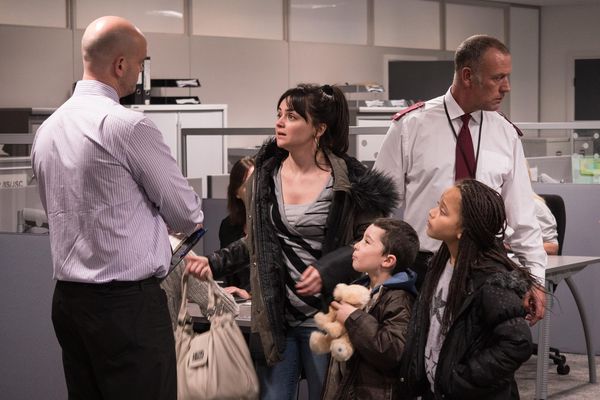Eye For Film >> Movies >> I, Daniel Blake (2016) Film Review
I, Daniel Blake
Reviewed by: Richard Mowe

Ken Loach rekindles his favoured themes in this heart-rendingly powerful evocation of the struggles of the underdog in the face of an uncaring system – in this case, welfare benefits.
Although the tone and the script (by long-time collaborator Paul Laverty) may be a shade too tub-thumping in places, nobody can deny Loach his integrity or his ability to move the emotions and to invoke anger at the injustice of it all.

It is shot simply in Newcastle by cinematographer Robbie Ryan, a city that has defied its misfortunes on many occasions and has survived on a wave of Geordie pluck in the face of adversity.
The titular Daniel Blake (played by newcomer Dave Johns) is a carpenter in his Fifties, living in a council housing block. He has been nursing his wife through a terminal illness but he has been banned from coming back to work until recovers from a heart attack.
Thus begins his Kafka-esque journey through the machinations of claiming for Employment and Support Allowance, involving endless interviews with a string of individuals and assessors, who seek to judge whether he is fit for work. Some of the bureaucratic red-tape goes from the sublime to the ridiculous.
The attitude of welfare staff has to be heard to be believed, operating from a standpoint that all claimants have to be skivers who do not want to work.
There are few sympathetic people who are prepared to listen but one is Ann (Kate Rutter) from the job centre who gets criticised for being overly helpful by assisting Daniel fill in a form online.
Hayley Squires plays a single mum with two children whom Daniel tries valiantly to help – despite his own simmering sense of desperation. Both Johns and Squires play their characters to perfection, investing them with traits of compassion and a fierce survival instinct.
Loach is never less than movingly meticulous in his exposés of society’s iniquities and injustices. The film preserves a sense of immediacy and is achingly relevant for our times much in the same way Cathy Come Home was for the Sixties.
Reviewed on: 13 May 2016















